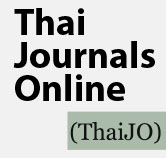
ความสัมพันธ์ระหว่างประสบการณ์ภาษาอังกฤษกับความสามารถในการระบุคำภาษาอังกฤษที่มีการกร่อนเสียงสระโดยนักเรียนไทย
THE RELATIONSHIP BETWEEN ‘ENGLISH LANGUAGE EXPERIENCE’ AND THAI STUDENTS VOWEL REDUCED ENGLISH WORD IDENTIFICATION ABILITY
โดย เกศรา ตาลอิสาร / By Kesara Tarnisarn
Damrong Journal, Vol 11, No.1, 2012
บทคัดย่อ:
งานวิจัยนี้มีวัตถุประสงค์เพื่อวิเคราะห์และเปรียบเทียบความสามารถในการระบุคำภาษาอังกฤษ ที่มีการกร่อนของเสียงสระ 3 กลุ่ม คือคำที่กร่อนเป็นเสียง สระ 3 กลุ่ม คือ คำที่กร่อนเป็นเสียง และ และวิเคราะห์ความสัมพันธ์ระหว่างประสบการณ์ภาษาอังกฤษกับความสามารถในการระบุคำของนักเรียนไทย ข้อมูลเก็บจากกลุ่มตัวอย่าง 3 กลุ่ม ได้แก่ นักเรียนไทยที่มีประสบการณ์ภาษาอังกฤษสูง และนักเรียนไทยที่มีประสบการณ์ภาษาอังกฤษตำจำนวนกลุ่มละ 30 คน และกลุ่มเจ้าของภาษา เพื่อนำมาเปรียบเทียบ 10 คน ใช้คำเปาหมายจำนวน 30 คำ เก็บข้อมูลโดยวิธีเขียนคำตามคำบอก
ผลการวิจัยพบว่า เจ้าของภาษาระบุคำได้ถูก 98.33% ระบุคำผิด 1.00% และไม่ระบุคำ 0.67% นักเรียนกลุ่มที่มีประสบการณ์ภาษาอังกฤษสูงระบุคำได้ถูก 62.56% ระบุคำผิด 31.11% และไม่ระบุคำ 6.33% นักเรียนกลุ่มที่มีประสบการณ์ภาษาอังกฤษตำระบุคำได้ถูก 26.00% ระบุคำผิด 47.22% และไม่ระบุคำ 26.78% ข้อผิดที่พบในกลุ่มนักเรียนไทยจำแนกได้เป็น 5 ประเภท ได้แก่ 1.) ระบุคำได้ถูกแต่สะกดคำผิด 2.) ระบุคำผิดเป็นคำอื่น และ 3.) ระบุคำผิดเป็นคำอื่นและสะกดคำผิด 4.) ระบุคำผิดไม่เป็นคำ 5.) ไม่ระบุคำ ส่วนเจ้าของภาษามีการระบุคำได้ถูกแต่สะกดคำผิด ระบุคำผิดเป็นคำที่มีความหมาย และไม่ระบุคำ โดยกลุ่มประสบการณ์สูงมีการระบุคำผิดเป็นคำที่มีความหมายมากที่สุด ในขณะที่กลุ่มประสบการณ์ตำไม่ระบุคำมากที่สุด ผลของการวิจัยแสดงความสัมพันธ์ระหว่างประสบการณ์ภาษาอังกฤษกับความสามารถในการระบุคำที่มีการกร่อนของเสียงสระ นอกจากนี้ การวิเคราะห์ปัญหาในการระบุคำจากกลุ่มตัวอย่างแสดงให้เห็นว่า ความสามารถในการระบุคำต้องอาศัยความรู้ทางไวยากรณ์ที่ฝังตัวอยู่ในคำ ทั้งในด้านเสียง ตัวสะกด และความหมายของคำ รวมทั้งคลังคำที่ผู้เรียนมีอยู่ด้วย
ABSTRACT:
The objectives of this research are to: analyze and compare the ability in identifying English words with reduced vowel sounds using dictation tasks, and to analyze the relation between the English language experience and identification ability. The sample consisted of 3 groups of speakers: 1) 10 native speakers of English; 2) 30 Thai students with ‘high’ language competence; 3) 30 Thai students with ‘low’ English language competence. The test words in this study contained 3 reduced vowel sounds: . It was found that the native speaker group could identify 98.33% of the words correctly, 1.00% incorrectly, and were unable to identify 0.67%. The high competence group identified 62.56% of the words correctly, 31.11% incorrectly, and were unable to identify 6.33%. The low competence group had the lowest identification ability, identifying only 26.00% of the words correctly, 47.22% incorrectly, and were unable to identify 26.78%. Five major categories of errors were established: 1) Identifying the word correctly, but incorrectly spelling the word; 2) Identifying the word incorrectly as another word; 3) Identifying the word as another word and incorrectly spelling it; 4) Identifying a ‘non – word’ which is incorrect and meaningless; 5) Not identifying the word. The native speakers showed instances of the first and second categories. The high competence group demonstrated problems identifying words in the first four categories, but predominantly within category two. The low competence group also displayed errors identifying words in the first four categories as well as markedly higher instances in the fifth category. It can be deduced that vowel sound reduction of English words has a great effect on both listening skills and word identification.











